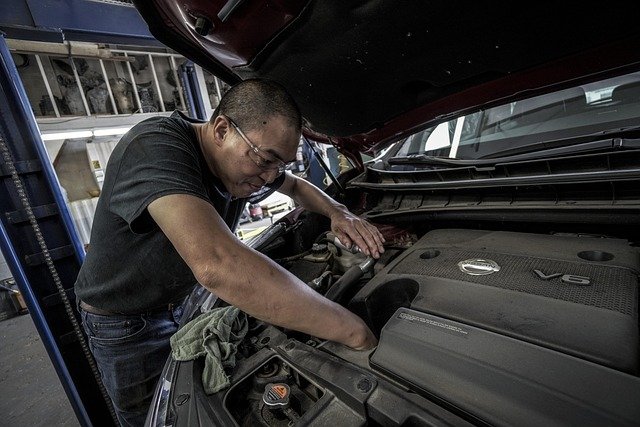Automotive Mechanic Training: Your Path to a Rewarding Career in Vehicle Repair
The automotive industry continues to evolve, creating a growing demand for skilled mechanics who can diagnose and repair complex vehicle systems. If you have a passion for cars and enjoy working with your hands, a career as an automotive mechanic might be the perfect fit. This article explores the world of automotive mechanic training, providing valuable insights into education options, career prospects, and the skills you'll need to succeed in this dynamic field.

-
Brake systems
-
Electrical systems and diagnostics
-
Suspension and steering
-
Transmission and drivetrain
-
Heating and air conditioning systems
Most training programs combine classroom instruction with hands-on practice in a workshop setting. This approach allows students to gain theoretical knowledge while developing practical skills that are essential for success in the field.
What Are the Different Types of Automotive Mechanic Training Programs?
There are several paths to becoming an automotive mechanic, each offering different levels of education and specialization:
-
Vocational High School Programs: Some high schools offer automotive technology courses as part of their vocational education curriculum. These programs provide a foundation for students interested in pursuing a career in automotive repair.
-
Certificate Programs: Short-term certificate programs, typically lasting 6-12 months, offer focused training in specific areas of automotive repair. These programs are ideal for those looking to quickly enter the workforce or specialize in a particular aspect of vehicle maintenance.
-
Associate Degree Programs: Two-year associate degree programs in automotive technology provide a more comprehensive education, combining general education courses with specialized automotive training. These programs often include internships or cooperative work experiences.
-
Manufacturer-Specific Training: Many car manufacturers offer specialized training programs for mechanics who want to work specifically on their brand of vehicles. These programs can lead to certifications that are highly valued by dealerships and specialized repair shops.
How Long Does It Take to Complete Automotive Mechanic Training?
The duration of automotive mechanic training can vary depending on the type of program you choose:
-
Certificate programs: 6-12 months
-
Associate degree programs: 2 years
-
Apprenticeship programs: 2-5 years
-
Manufacturer-specific training: Varies by program, typically several weeks to months
It’s important to note that learning in this field is ongoing. As automotive technology continues to advance, mechanics must regularly update their skills and knowledge through continuing education courses and manufacturer-specific training.
What Skills Are Essential for Success as an Automotive Mechanic?
Becoming a successful automotive mechanic requires a combination of technical knowledge and personal qualities:
-
Technical skills: Understanding of mechanical, electrical, and computer systems in vehicles
-
Diagnostic abilities: Skill in identifying and troubleshooting complex issues
-
Manual dexterity: Ability to work with small parts and tools
-
Problem-solving skills: Capacity to find creative solutions to unusual problems
-
Customer service: Excellent communication skills for explaining repairs to clients
-
Attention to detail: Precision in performing repairs and maintaining safety standards
-
Physical stamina: Ability to stand, bend, and lift heavy parts for extended periods
What Career Opportunities Are Available After Completing Automotive Mechanic Training?
Completing automotive mechanic training opens up a variety of career paths:
-
General Automotive Mechanic: Work in independent repair shops or dealerships, performing a wide range of repairs and maintenance tasks.
-
Specialized Technician: Focus on specific systems such as brakes, transmissions, or engine performance.
-
Diesel Mechanic: Specialize in maintaining and repairing diesel engines in trucks and heavy equipment.
-
Auto Body Technician: Focus on repairing and restoring vehicle bodies after accidents.
-
Service Manager: Oversee the operations of a repair shop or service department.
-
Automotive Instructor: Teach automotive technology at vocational schools or community colleges.
| Training Program | Duration | Typical Cost Range |
|---|---|---|
| Certificate Program | 6-12 months | $5,000 - $15,000 |
| Associate Degree | 2 years | $10,000 - $25,000 |
| Apprenticeship | 2-5 years | Paid while learning |
| Manufacturer-Specific | Varies | $1,000 - $5,000 per course |
Prices, rates, or cost estimates mentioned in this article are based on the latest available information but may change over time. Independent research is advised before making financial decisions.
How Can You Choose the Right Automotive Mechanic Training Program?
Selecting the right training program is crucial for your success as an automotive mechanic. Consider the following factors:
-
Accreditation: Ensure the program is accredited by a recognized organization such as the National Automotive Technicians Education Foundation (NATEF).
-
Curriculum: Look for programs that offer a comprehensive curriculum covering all aspects of modern vehicles, including hybrid and electric car technologies.
-
Hands-on Experience: Prioritize programs that provide ample opportunities for practical, hands-on learning in well-equipped workshops.
-
Industry Connections: Programs with strong ties to local dealerships or repair shops may offer better internship and job placement opportunities.
-
Cost and Financial Aid: Compare the costs of different programs and investigate financial aid options, including scholarships and grants specific to automotive education.
Automotive mechanic training provides a solid foundation for a rewarding career in the automotive industry. With the right education and a commitment to ongoing learning, you can build a successful career keeping vehicles running safely and efficiently. Whether you’re just starting out or looking to advance your skills, there’s an automotive mechanic training program designed to meet your needs and help you achieve your career goals.






